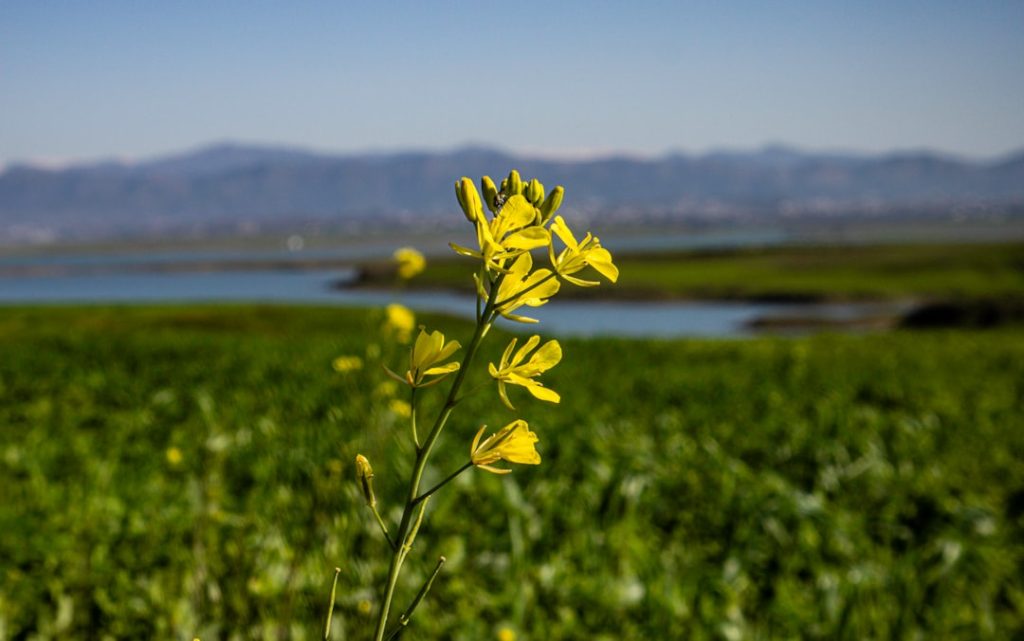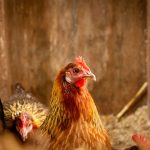Maintaining a cool environment for chickens is crucial for their health and productivity, particularly during hot weather. Chickens are susceptible to heat stress, which can cause dehydration, reduced egg production, and mortality if not properly managed. Providing adequate cooling resources is essential for ensuring the flock’s overall well-being and output.
High temperatures can lead to various heat-related issues in chickens, including panting, lethargy, and decreased appetite. In severe cases, heat stroke may occur, which can be fatal if not addressed promptly. Implementing proactive cooling measures helps prevent these problems and maintains the flock’s health.
Such measures include providing shade and shelter, ensuring access to cool water, adjusting feeding practices, monitoring chicken behavior, and modifying coop and run environments. Chicken productivity is directly affected by temperature. Excessive heat can cause a decline in egg production, as hens may reduce or cease laying in response to high temperatures.
By implementing effective cooling strategies, poultry owners can help maintain egg production and overall flock performance during hot periods. Prioritizing chicken cooling is essential for their health, comfort, and productivity, making it a critical consideration for poultry keepers during summer months.
Table of Contents
- 1 Providing Shade and Shelter for Your Flock
- 2 Using Water and Misters to Beat the Heat
- 3 Adjusting Feeding and Treats for Hot Weather
- 4 Monitoring Your Chickens’ Behavior and Health
- 5 Tips for Keeping Coops and Runs Cool
- 6 Preparing for Extreme Heat and Emergency Situations
- 7 FAQs
- 7.1 What are some ideas to keep chickens cool in hot weather?
- 7.2 How important is it to keep chickens cool in hot weather?
- 7.3 What are signs that chickens may be suffering from heat stress?
- 7.4 How can I provide shade for my chickens?
- 7.5 What should I do if I notice my chickens are struggling in the heat?
Key Takeaways
- Keeping chickens cool is important for their health and well-being, especially during hot weather.
- Providing shade and shelter is essential for protecting your flock from the sun and heat.
- Using water and misters can help chickens stay cool and hydrated in hot weather.
- Adjusting feeding and treats can help prevent heat stress in chickens during hot weather.
- Monitoring your chickens’ behavior and health is crucial for identifying signs of heat stress and taking necessary action.
Providing Shade and Shelter for Your Flock
Why Shade and Shelter are Crucial
Direct sunlight can quickly raise the temperature in your chicken coop and run, making it uncomfortable and potentially dangerous for your flock. By offering ample shade and shelter, you can help your chickens escape the heat and stay comfortable throughout the day.
Ways to Provide Shade
There are several ways to provide shade for your chickens, including natural options such as trees, shrubs, or tall grasses that can offer protection from the sun. If natural shade is limited in your chicken coop or run, you can also create artificial shade using tarps, umbrellas, or shade cloth to cover areas where your chickens spend the most time. Additionally, providing shelter within the coop itself, such as nesting boxes or elevated perches, can give your chickens a cool place to rest during the hottest parts of the day.
Ensuring Proper Ventilation
It’s important to ensure that the shade and shelter you provide are well-ventilated to allow for airflow and prevent heat from becoming trapped in these areas. Proper ventilation will help keep your chickens cool and comfortable while also reducing the risk of heat-related issues.
Creating a Comfortable Environment
By prioritizing shade and shelter for your flock, you can create a more comfortable environment for your chickens and help them stay healthy and happy despite the summer heat.
Using Water and Misters to Beat the Heat

Another crucial aspect of keeping your chickens cool in hot weather is ensuring they have access to an adequate water supply. Chickens need plenty of fresh, cool water to stay hydrated and regulate their body temperature during high temperatures. It’s important to regularly check and refill their water containers to ensure they have access to clean water throughout the day.
In addition to providing water for drinking, you can also use water as a tool to help cool down your chickens. Setting up misters or sprinklers in the chicken coop or run can create a refreshing mist that helps lower the ambient temperature and provides relief from the heat. This can be especially beneficial during the hottest parts of the day when your chickens are most at risk of heat stress.
Another option is to provide shallow water baths or wet areas for your chickens to wade in or dust bathe. This allows them to cool off by wetting their feathers and helps them regulate their body temperature naturally. By incorporating water-based cooling methods into your chicken care routine, you can help your flock beat the heat and reduce the risk of heat-related issues during hot weather.
It’s important to monitor the water supply regularly and ensure that it remains clean and cool throughout the day. By prioritizing access to water and using water-based cooling methods, you can help keep your chickens comfortable and healthy even in the midst of summer heat.
Adjusting Feeding and Treats for Hot Weather
In addition to providing shade, shelter, and water for your chickens during hot weather, it’s important to make adjustments to their feeding routine to help them stay cool and healthy. High temperatures can affect your chickens’ appetite and digestion, so it’s essential to adapt their diet accordingly to support their overall well-being. During hot weather, it’s a good idea to offer smaller, more frequent meals to prevent your chickens from overeating or feeling too full in the heat.
This can help reduce the metabolic heat generated during digestion and make it easier for your flock to stay comfortable throughout the day. Additionally, consider feeding your chickens during the cooler parts of the day, such as early morning or late evening, to minimize the impact of the heat on their digestion. You can also adjust their treats and snacks to include more hydrating options such as fruits or vegetables with high water content.
Watermelon, cucumbers, and leafy greens are excellent choices that can help keep your chickens hydrated while also providing essential nutrients. Avoid offering heavy or high-protein treats during hot weather, as these can increase metabolic heat production and put additional strain on your chickens’ bodies. By making thoughtful adjustments to your chickens’ feeding routine and treats during hot weather, you can support their digestive health and overall comfort while reducing the risk of heat-related issues.
Prioritizing their nutritional needs during high temperatures is an important part of keeping your flock healthy and thriving throughout the summer months.
Monitoring Your Chickens’ Behavior and Health
As a responsible chicken owner, it’s crucial to closely monitor your flock’s behavior and health during hot weather to ensure they are coping well with the heat. Keep an eye out for signs of heat stress, such as panting, lethargy, reduced activity, or decreased appetite. These can indicate that your chickens are struggling to stay cool and may require additional support to prevent heat-related issues.
Regularly observe your chickens’ behavior throughout the day, paying attention to how they are spending their time in the coop or run. If you notice that they are seeking out shady areas or panting excessively, it’s important to take action to help them cool down. Providing additional shade, misting them with water, or offering cooling treats can all help alleviate heat stress and keep your flock comfortable.
It’s also essential to monitor your chickens’ overall health during hot weather, as high temperatures can exacerbate existing health issues or make them more susceptible to illness. Keep an eye out for any signs of illness or distress, such as unusual behavior, changes in egg production, or physical symptoms like diarrhea or labored breathing. If you notice any concerning signs, it’s important to consult with a veterinarian who specializes in poultry health to ensure that your flock receives proper care.
By staying vigilant and proactive in monitoring your chickens’ behavior and health during hot weather, you can identify potential issues early on and take steps to address them before they escalate. This proactive approach is essential for maintaining the well-being of your flock and ensuring they remain healthy and resilient despite the challenges of summer heat.
Tips for Keeping Coops and Runs Cool

Reflective Materials for a Cooler Coop
In addition to providing shade, shelter, water, and adjusting feeding routines for your chickens during hot weather, using reflective materials on the roof of the coop or run can be an effective strategy to reduce heat absorption from direct sunlight. Reflective paint or metal roofing can help deflect sunlight and lower the temperature inside these structures, creating a cooler space for your flock.
Improving Airflow with Fans and Ventilation
Another option is to install fans or ventilation systems in the coop or run to improve airflow and reduce heat buildup. This can help create a more comfortable environment for your chickens by preventing stagnant air and promoting better air circulation.
Insulating the Coop for a Stable Temperature
You can also use insulating materials such as straw or hay on the floor of the coop to provide additional insulation against heat transfer from the ground. This can help maintain a more stable temperature inside the coop and reduce the impact of external heat on your flock.
By implementing these tips for keeping coops and runs cool, you can create a more comfortable living space for your chickens during hot weather while reducing the risk of heat-related issues. Prioritizing their living conditions is essential for supporting their overall well-being and ensuring they remain healthy and resilient throughout the summer months.
Preparing for Extreme Heat and Emergency Situations
While proactive measures are essential for keeping your chickens cool during hot weather, it’s also important to prepare for extreme heat events and emergency situations that may arise unexpectedly. One important step is to have a plan in place for extreme heat events, including access to backup power sources for fans or misters in case of power outages. It’s also a good idea to have emergency supplies on hand such as extra water containers, cooling pads or ice packs for your chickens, and a plan for relocating them to a cooler area if necessary.
In addition, it’s important to be aware of the signs of heat stroke in chickens and know how to respond if one of your flock members shows symptoms of severe heat stress. This may include moving them to a cooler area immediately, providing access to cool water for drinking or bathing, and seeking veterinary care if needed. Finally, consider establishing a network of fellow chicken owners or local resources that you can turn to for support during extreme heat events or emergency situations.
This can include sharing information about cooling strategies, coordinating efforts to provide assistance if needed, or simply offering moral support during challenging times. By preparing for extreme heat events and emergency situations in advance, you can ensure that you are ready to respond effectively if unexpected challenges arise during hot weather. This proactive approach is essential for safeguarding the well-being of your flock and ensuring they remain healthy and resilient even in the face of extreme heat.
If you’re looking for more ideas on how to keep your chickens cool, check out this article on chicken coop portage. It offers tips on how to design and position your coop to provide maximum ventilation and shade for your chickens during hot weather.
FAQs
What are some ideas to keep chickens cool in hot weather?
Some ideas to keep chickens cool in hot weather include providing shade, ensuring proper ventilation in the coop, offering cool water and frozen treats, and using misters or fans to lower the temperature.
How important is it to keep chickens cool in hot weather?
It is very important to keep chickens cool in hot weather as they are susceptible to heat stress, which can lead to decreased egg production, illness, and even death.
What are signs that chickens may be suffering from heat stress?
Signs that chickens may be suffering from heat stress include panting, lethargy, decreased egg production, and seeking out shady areas.
How can I provide shade for my chickens?
You can provide shade for your chickens by using natural shade from trees or shrubs, setting up tarps or umbrellas, or creating a shaded area with a roof or awning.
What should I do if I notice my chickens are struggling in the heat?
If you notice your chickens are struggling in the heat, you should immediately provide them with access to cool water, shade, and ventilation. You may also consider using misters or fans to help lower the temperature. If a chicken appears to be in distress, seek veterinary care immediately.
Meet Walter, the feathered-friend fanatic of Florida! Nestled in the sunshine state, Walter struts through life with his feathered companions, clucking his way to happiness. With a coop that’s fancier than a five-star hotel, he’s the Don Juan of the chicken world. When he’s not teaching his hens to do the cha-cha, you’ll find him in a heated debate with his prized rooster, Sir Clucks-a-Lot. Walter’s poultry passion is no yolk; he’s the sunny-side-up guy you never knew you needed in your flock of friends!







